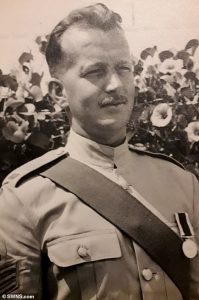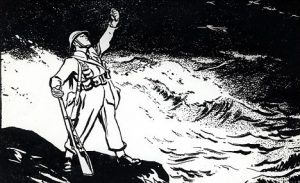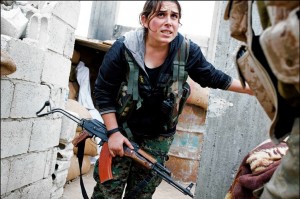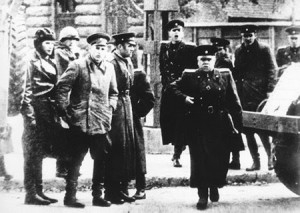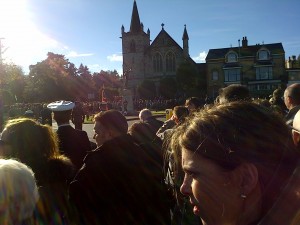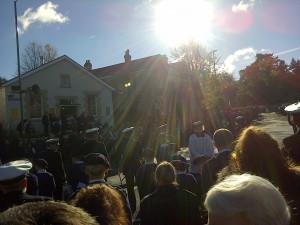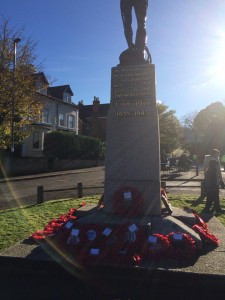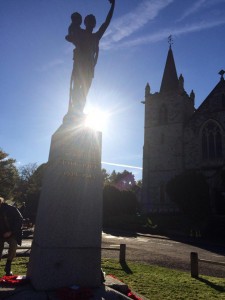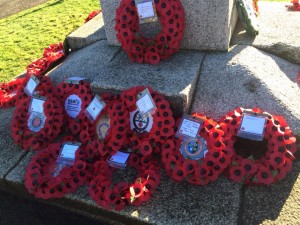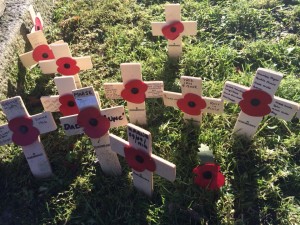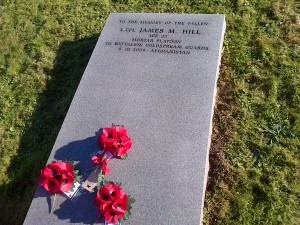A must read for all those who want to separate myth from reality about the Western Front in The First World War 1914-1918
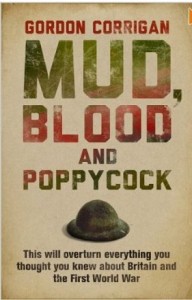
These quotations are from Mud, Blood and Poppycock by Gordon Corrigan
The popular view of the First World War remains that of BLACKADDER: incompetent generals sending brave soldiers to their deaths. Alan Clark quoted a German general’s remark that the British soldiers were ‘lions led by donkeys’. But he made it up.
Indeed, many established ‘facts’ about 1914-18 turn out to be myths woven in the 1960s by young historians on the make. Gordon Corrigan’s brilliant, witty history reveals how out of touch we have become with the soldiers of 1914-18. They simply would not recognize the way their generation is depicted on TV or in Pat Barker’s novels.
The perception of soldiering in the Great War is of a young patriot enlisting in 1914 to do his bit, and then being shipped off to France. Arriving at one of the Channel ports he marches all the way up to the front, singing ‘Tipperary’ and smoking his pipe, forage cap on the back of his head. Reaching the firing line, he is put into a filthy hole in the ground and stays there until 1918. If he survives, he is fed a tasteless and meagre diet of bully beef and biscuits. Most days, if he is not being shelled or bombed, he goes ‘over the top’ and attacks a German in a similar position a few yards away across no man’s land. He never sees a general and rarely changes his lice infested clothes, while rates gnaw the dead bodies of his comrades.
MARCHING
The original BEF, composed of pre-war regulars and reservists, did do quite a lot of marching, but they would have been very unlucky to have to tramp all the way from Boulogne to Belgium. As far as possible men moved by train until they were a few miles from the front, and as the war went on and motor lorries became available these too were used to speed up movement. As early as 1914 London buses were shipped out to the front for use as troop carriers.
TRENCHES
French and German ideas on trench construction differed according to the military philosophy of the two nations. The French military doctrine was of constant aggression: the offensive was what mattered, and their works reflected this. They were largely earthen, used little concrete and were often without revetment (zigzagging). Their main purpose was to provide a launching pad for the French attacks. German defences. On the other hand, were stoutly and meticulously constructed. Concrete was used and deep dugouts were built; in some cases so well built and so deep that no Allied artillery could affect them, as the British would learn to their cost on the Somme.
The design and dimensions of British trenches were based on a good British compromise. The British adopted much from the French methods, but they also used concrete and revetting when available. Unlike the French, the British were not wedded to the idea of constant attacks. Indeed, in private some British commanders and politicians thought that Britain should stay on the defensive until her New armies were ready and then intervene massively, end the war and dictate the future shape of Europe.
HYGIENE
Despite the tales of rats, lice and general filth, cleanliness and hygiene in the trenches were strictly enforced. The paid a great deal of attention to its latrines, as indeed it had to. Disease caused by poor hygiene had dogged armies throughout history and dysentery had always been a big problem. By now the army was well aware that if human waste was not disposed of properly, unnecessary casualties would follow. The average made produces 2.4 pounds weight of faeces and urine per day. In the average company defended position this in a ton a week. In the forward areas latrines were constructed just behind the trenches at the end of a communication trench and out of view of the enemy. They were usually deep pits with wooden seats on top. Disinfectant was provided and when full the latrine was closed.
A general lack of cleanliness made worse by food left lying about, particularly in andaround horse lines and abandoned ration dumps, could of course attract rats. They did scamper around in no man’s land and bodies left uncovered did provide food for them. Bodies were always buried whenever humanly possible and taken to the rear for temporary burial, before being given a proper funeral. Bodies left lying around where the fell were not good fore morale; they were never left in the trenches or buried in the parapet as was the practice in the French trenches.
RATS & LICE
Good discipline got rid of rubbish and edible scraps, and rats were rarely a problem in the trenches, although lice, inevitable when men cannot wash properly, sometimes were. On coming out of the line troops had their uniforms fumigated, laundered and ironed, and if necessary exchanged to reduce the risk of infestation.
TROOP ROTATION
British soldiers did not spend four years of the war in the firing line, or even at the front. Men were regularly rotated from the firing line to the support and reserve trenches and then back to billets, usually well behind the battle area. With a division having two brigades in the line and one out, and with each brigade having two of its four battalions in the line, a battalion could expect on average, to spend just ten days a month in the trenches. It was unusual to find any battalion spending more than four or five days a month continuously in the firing line.
TRENCH FOOT
The winter of 1914 –15 was exceptionally cold and wet, and flooding of trenches was a problem. Initially this led to large numbers of men contracting trench foot, caused by lack of circulation in the feet and legs and. If untreated, leading to gangrene and amputation. Most cases were caught before recourse to the knife but, before preventative measures were enforced, many soldiers suffered from bad feet. The remedies were the issue of whale oil and thigh high rubber waders, the loosening of puttees, regular changing of socks, and drainage of the trenches. At first drains were soak pits dug into the floor, but mechanical pumps would later be provided. By the middle of 1915 trench foot had all but been eliminated, except in battalions new to the front.
DIET
It is now recognised that a fit, active and athletic adult male needs a daily intake of between 3,000 and 2,500 calories. Heavy physical work or exceptional cold increases the requirements. The British army aimed to give its soldiers at the front a daily intake of 4,193 calories. This was less than the French and more than the Germans who aimed for 4,466 and 4,038 calories respectively. Soldiers rarely went hungry except in the most extreme circumstances. Soldiers did not complain about lack of food, although they did complain about its monotony.
Where possible fresh meet was bread were issued, even in the firing line when a hot meal might be brought up at night, but there were many times when the fighting meant that the men had to survive on corned beef and biscuits. Nevertheless, while hardly appetising, this was a far better diet than many had been used to at home, where in poorer households meat was eaten once or twice a week, and it was healthy and filling. The tea issue was enough to provide each man with six pints of army tea a day, and British soldiers have always loved their tea!
MORALE
It has generally been considered that one indicator of morale and discipline in a unit is its sick rate: that is the percentage of men reporting sick with ailments due to causes other than enemy action. Before the war it was considered that 0.3 daily, or about three men a day in an infantry battalion of 750 men was a reasonable sick rate for an army in the field. Te rate for 1913 was in fact 0.12 percent and after the war, 1929 to 1928, it was 0.17. On the Western Front, with total war in full swing, the sick rate for August to December 1914 was 0.26, declining to 0.24 percent in 1915 and 0.13 percent in 1016. Throughout he war the sick rate was well below acceptable peacetime rates.
H/T John D Clare
